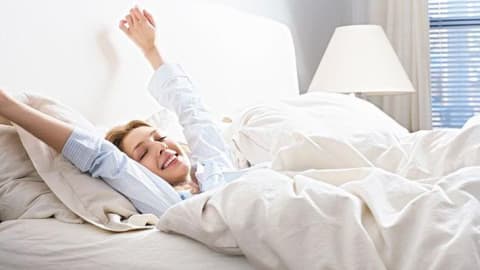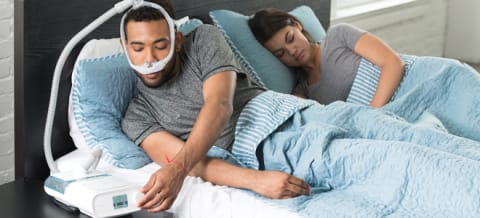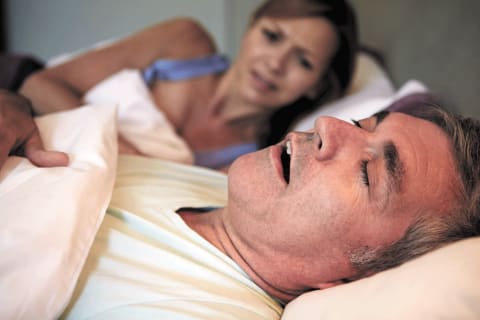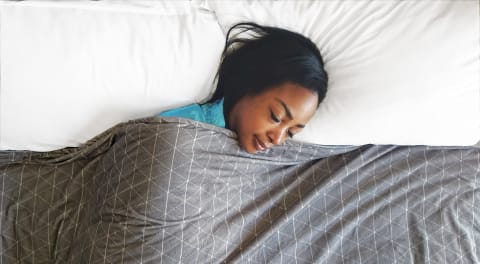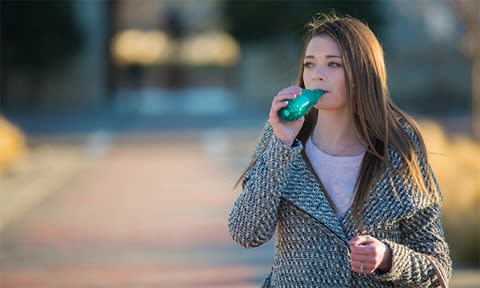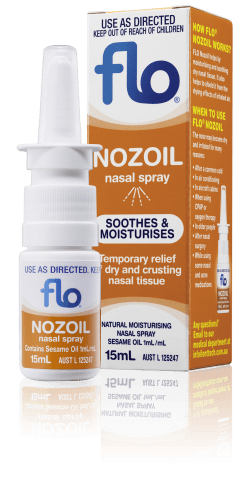Quit Snoring Devices
Understanding Snoring Prevention Devices: Finding the Right Solution for Better Sleep
Snoring is a common issue that affects not just the snorer but also their partner and household. While it’s often harmless, persistent or loud snoring can be a sign of something more serious—like obstructive sleep apnea. At Sove CPAP Clinic, we believe in helping you get to the root of your sleep challenges with personalised support, clear guidance, and proven solutions.
On this page, we’ll explore the different types of snoring prevention devices available, when to consider CPAP therapy, and how Sove can help you find the most effective and comfortable option. Whether your snoring is occasional or every night, mild or disruptive, there’s a solution out there—and we’re here to help you find it.
Snoring Prevention Devices for Mild or Occasional Snorers
For many people, snoring happens only now and then—after a big meal, a few drinks, or when sleeping on your back. In these cases, simple, over-the-counter snoring prevention devices may offer real relief. Understanding how these devices work and who they’re best suited for is key.
Common Options Include:
- Nasal strips or dilators: These adhesive or internal supports work by physically opening the nasal passages, increasing airflow and reducing the vibration in soft tissues that causes snoring. Ideal for people with nasal congestion, allergies, or narrow nasal passages.
- Anti-snoring mouthguards (mandibular advancement devices): These are custom-moulded to the user’s teeth and shift the lower jaw forward slightly. By doing so, they help prevent the tongue and soft palate from collapsing into the airway. Suitable for those with mild snoring and normal jaw alignment.
- Positional therapy devices: These include wearable belts or pillows designed to encourage side sleeping. Back sleeping can worsen snoring due to gravity pulling the soft tissues backward. Side sleeping helps maintain a more open airway.
- Chin straps: These straps wrap around the chin and the top of the head, helping keep the mouth closed during sleep. They’re most effective when used alongside nasal devices or for people whose snoring worsens with mouth breathing.
It’s important to remember that these devices are best suited for “primary snorers”—people who snore but do not have diagnosed sleep apnea. They are not a substitute for medical assessment or therapy in more serious cases.
Before choosing a device, consider a discussion with one of our clinicians. Even occasional snoring can signal an underlying issue, and we can help you make an informed choice. Our team can also recommend professionally fitted oral appliances that go beyond standard chemist options.
When Snoring Signals a Need for CPAP Therapy
Snoring doesn’t always exist in a vacuum. In many people, especially those who snore loudly or persistently, it can be the first sign of a more complex sleep disorder—obstructive sleep apnea (OSA).
Signs your snoring might be due to OSA include:
- Gasping or choking during sleep
- Pauses in breathing noticed by a partner
- Morning headaches
- Daytime sleepiness or poor concentration
- Waking up frequently to urinate
In these situations, snoring prevention devices may not provide meaningful relief. Instead, the gold standard of treatment is CPAP therapy, which uses a gentle stream of pressurised air to keep your airway open.
Modern CPAP machines—like the ResMed AirSense 11 AutoSet or Fisher & Paykel SleepStyle+ Auto—are quieter, more compact, and more comfortable than ever before. They come equipped with smart sensors, heated humidifiers, and Bluetooth-enabled apps that track your progress.
Choosing the right CPAP mask is also crucial. Options include:
- Nasal pillows for minimal facial contact
- Nasal masks for a secure fit around the nose
- Full-face masks for mouth breathers or those with frequent congestion
If you or a loved one show signs of OSA, don’t guess. A sleep study is the best way to understand what’s happening. Sove CPAP Clinic offers both in-clinic and at-home sleep testing options, with follow-up consultations to guide your treatment.
Combining Snoring Devices with CPAP for Extra Comfort
For patients already using CPAP, adding complementary snoring solutions can enhance therapy comfort and effectiveness—especially during the adjustment period.
Examples of Combined Solutions:
- Nasal dilators: These help reduce airflow resistance for users who experience nasal congestion. Using them under a nasal CPAP mask can improve comfort and reduce leaks.
- Specialty CPAP pillows: These are contoured to accommodate different mask types and prevent dislodging during the night. They support better posture, reduce pressure points, and encourage side sleeping.
- Chin straps: These can be used with nasal masks to prevent mouth leaks in people who naturally breathe through their mouths at night.
- Heated humidifiers and tubing: These help reduce dryness, congestion, and the risk of condensation (rainout), making therapy feel more natural.
Many patients find that small adjustments or accessories make a big difference in therapy adherence. Don’t hesitate to experiment with different configurations to find your ideal setup.
At Sove CPAP Clinic, we go beyond one-size-fits-all recommendations. Our team provides comfort-focused consultations to fine-tune your therapy and troubleshoot any issues you may face.
Why Sove Offers More Than Just Snoring Solutions
Snoring is often the symptom—but not the whole story. That’s why Sove CPAP Clinic takes a comprehensive, patient-first approach to diagnosis, education, and treatment.
Here’s what sets us apart:
- Professional Guidance: Our clinicians work closely with you to interpret your sleep study results and recommend the right course of treatment—whether that’s CPAP therapy, oral appliance therapy, or a combination approach.
- Expert Fittings: We ensure your CPAP mask fits comfortably and provides an effective seal, a key factor in successful treatment.
- Education and Support: From equipment setup to lifestyle advice, we’re with you every step of the way. We help you adjust to new routines, answer your questions, and offer ongoing care.
- Device Trials and Rentals: Not ready to commit? Try before you buy. Our rental program helps you experience the benefits of CPAP before making a decision.
Whether you’re just starting your journey or have tried and struggled with other solutions in the past, Sove is here to support you. Our team believes sleep therapy should be approachable, effective, and tailored to your lifestyle.
ALWAYS FOLLOW THE DIRECTIONS FOR USE. CPAP is used for Obstructive Sleep Apnoea treatment. When considering whether a sleep study or CPAP is right for you, speak to your doctor. Medicare criteria and T&Cs apply.
Frequently Asked Questions
Can I use a snoring prevention device if I haven’t had a sleep study?
Yes, some over-the-counter snoring aids can be used without a prescription or sleep study. These include nasal strips, mouthpieces, and positional devices designed for mild snoring. However, it’s important to be cautious—if your snoring is loud, chronic, or accompanied by daytime tiredness, you might be experiencing sleep apnea without knowing it.
Snoring that stems from apnea won’t be resolved by simple devices and could worsen if left untreated. For this reason, we recommend scheduling a sleep assessment if you’re unsure. Sove CPAP Clinic offers convenient at-home sleep studies that provide detailed results without requiring a hospital visit.
Are snoring prevention devices safe to use every night?
Most snoring aids, including nasal strips and mouthguards, are safe for nightly use when used according to instructions. However, comfort, hygiene, and fit are key factors to monitor.
Always ensure devices are cleaned regularly, replaced when worn out, and checked for irritation or jaw discomfort. If snoring persists or worsens, it’s important to reassess your treatment plan. Sove CPAP Clinic can guide you on whether CPAP or further assessment is necessary.
What snoring prevention devices are suitable for mouthbreathers?
Mouthbreathers often struggle with nasal-only devices. In these cases, full-face CPAP masks, anti-snoring chin straps, or combination devices that support both nasal and oral breathing may be better options.
Mandibular advancement devices (MADs) designed for mouthbreathers can also be helpful, but should be fitted properly to avoid jaw strain. If you breathe through your mouth at night and have had trouble with past snoring aids, a consultation with Sove can help you find a more suitable alternative.
How quickly can I expect results from a snoring prevention device?
Results can vary depending on the device and the underlying cause of your snoring. Some people notice a reduction in snoring from the first night, while others may need a few weeks to adjust and see improvement.
Consistency is key—give your body time to adapt, and monitor whether you feel more rested and alert during the day. If results are limited or you notice symptoms like choking, gasping, or excessive tiredness, it may be time for a sleep study.
How do I know if my snoring is caused by Sleep Apnea?
While not all snorers have sleep apnoea, many people with OSA snore loudly and persistently. Warning signs include:
- Pauses in breathing
- Gasping or choking at night
- Morning headaches
- Dry mouth
- Excessive daytime fatigue
- Poor memory or concentration
If any of these apply to you—or your partner has noticed these signs—it’s important to get assessed. Sove CPAP Clinic can arrange a home sleep study and help you understand your results. Treating apnea early can significantly improve health, quality of life, and sleep for everyone in your home.

